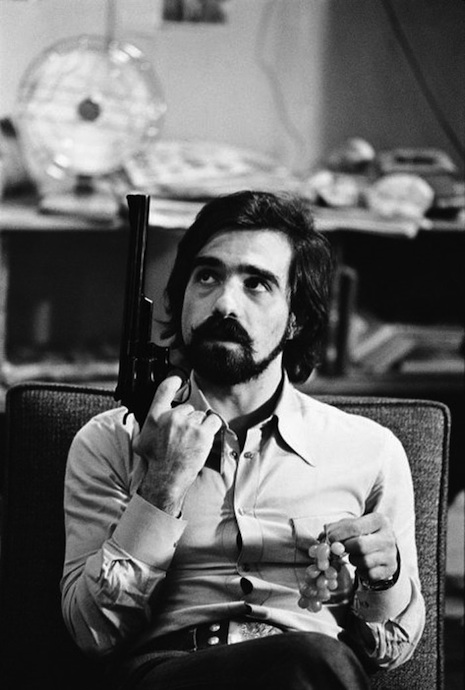Martin Scorsese started making movies when he was a kid. He suffered from asthma which meant he spent time a lot of isolated at home in bed. He couldn’t play like the other kids. Instead he watched them from his bedroom window running free, playing baseball and getting in fights. His bedroom window was his first viewfinder. He watched the world outside and imagined stories about the people he saw. His imagination was inspired by the movies at the local cinema—films starring Victor Mature, or those made by Powell and Pressburger.Scorsese was raised a Catholic. He was an altar boy and his parents thought one day he might become a priest. In church Scorsese saw the power and drama contained in the religious statues and paintings—the pieta with its crucified Christ draped across his mother’s lap. The martyred saints showing their wounds and pointing to unknowable heavens. Imagery was a visceral source of communication. At home in bed he created his own movies, spending hours painstakingly drawing storyboards, frame by frame, for the imaginary films he would one day direct.
In his teens he gave up on being a priest and went to the film school at NYU. He made the short films What’s a Nice Girl Like You Doing in a Place Like This? (1963) and The Big Shave (1967). Scorsese’s greatest films are the ones informed with his own personal experience and knowledge of the world. Catholic guilt (Who’s That Knocking at My Door?); machismo posturing and violence (Mean Streets); violence, redemption and isolation (Taxi Driver, Raging Bull).
Much of this is well covered in Joel Sucher and Steven Fischler’ profile of Scorsese. Made for the PBS series, American Masters in 1990, this documentary follows the director during the making of Goodfellas. It contains superb interviews (most delightfully Scorsese’s parents), choice cuts from his films and contributions from actors (Harvey Keitel, Robert De Niro, Amy Robinson), producers and fellow directors—like Steven Spielberg who says the intense emotional turmoil of Scorsese’s work, “Sometimes you don’t know whether to scream or to laugh.”
Thursday, February 11, 2016
"Martin Scorsese Directs"
from Dangerous Minds
Labels:
film,
Martin Scorsese
Subscribe to:
Post Comments (Atom)



























No comments:
Post a Comment